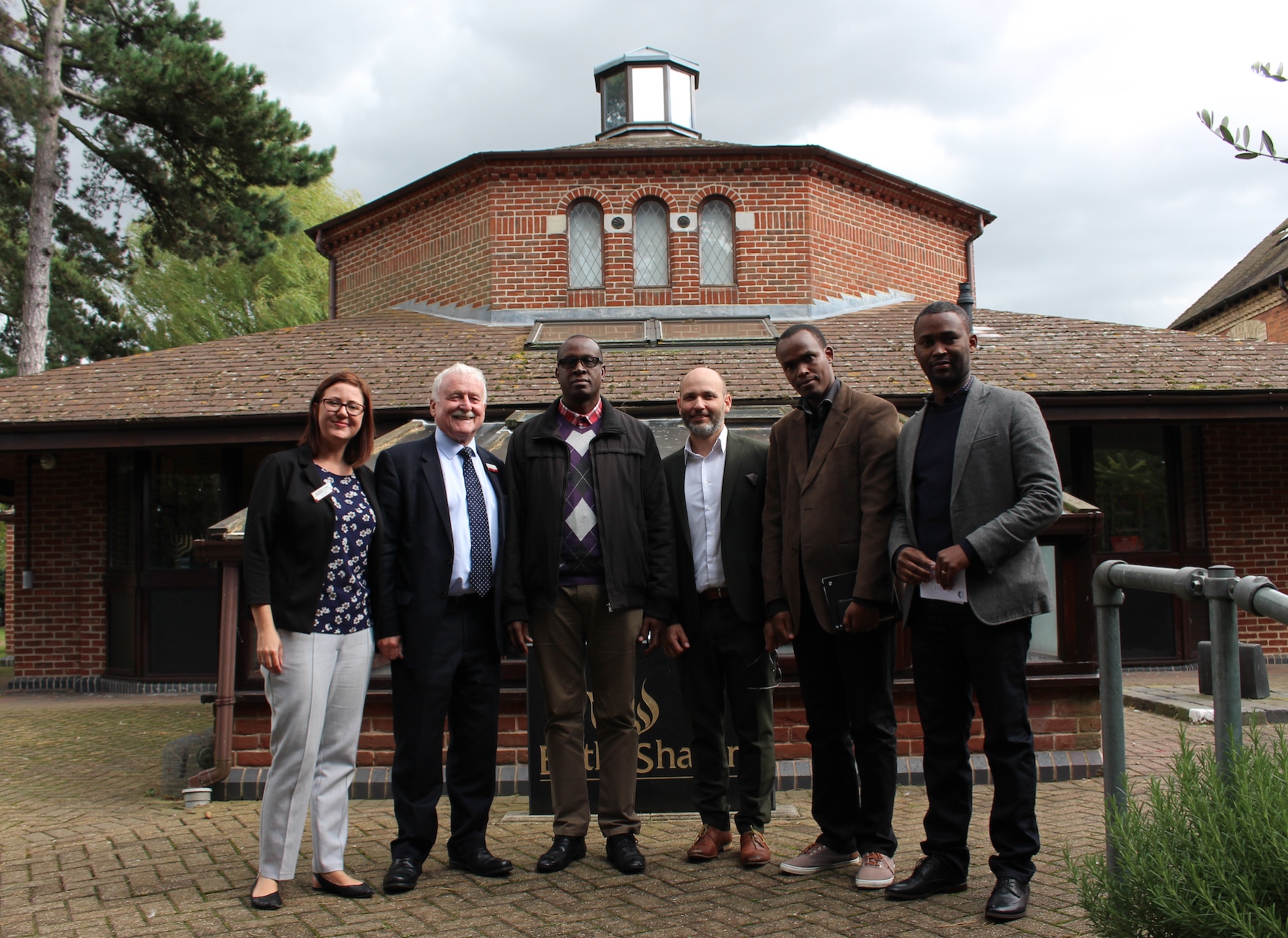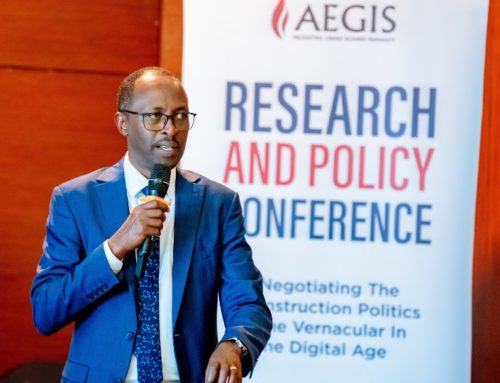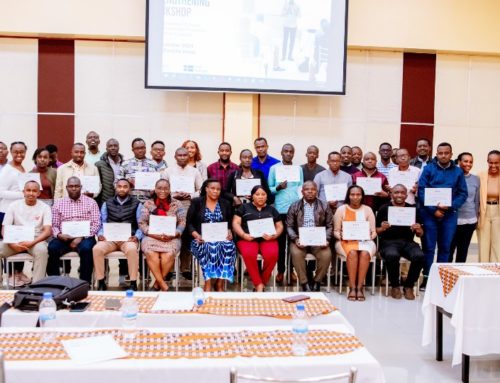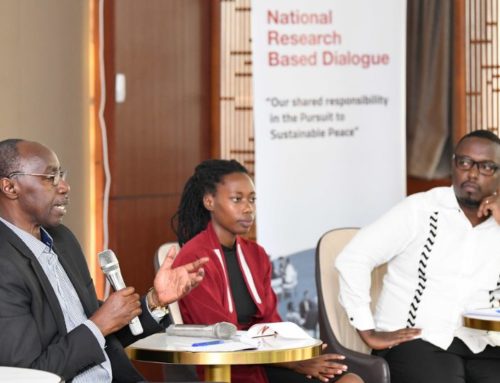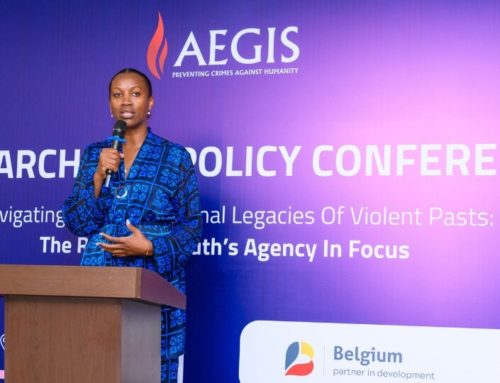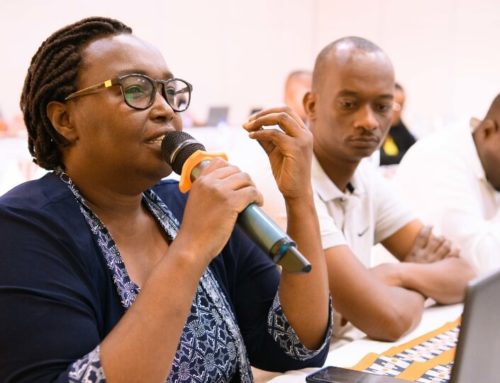Dr Jean Damascène Bizimana, Executive Secretary of Rwanda’s National Commission for the Fight against Genocide (CNLG) last week visited the UK National Holocaust Centre with Aegis colleagues Yves Kamuronsi (Country Director) and Felix Ndahinda (Director of Aegis’ Research, Policy & Higher Education Programme).
The visit was part of a three-day symposium in London on Digital Archives, Memory and Reconstruction, organised by the Aegis Trust with King’s College London, where Dr Bizimana gave a keynote lecture on “the place of archives of national and international jurisdictions in the preservation of the memory of the genocide committed against the Tutsi and the fight against impunity, genocide denial and the ideology of the genocide”.
Dr Bizimana was welcomed by Dr James Smith, Chief Executive of the Aegis Trust and President of the National Holocaust Centre, together with Phil Lyons, the Centre’s Chief Executive.
After introductions to the Centre’s management, archive and education teams, Dr Bizimana toured its permanent exhibitions – including ‘The Journey’, designed for primary school children. Together with Aegis colleagues from Rwanda he also received previews of new interactive educational content being developed.
“It’s a very important centre. I’ve learned a lot from the work you do here in terms of how also we can work towards improving our memorials,” Dr Bizimana commented at the end of the visit. “You have presentations and exhibitions which are very much adapted to younger children. We don’t have that yet. And that’s remarkable,” he said. “The most important thing in the work we do is to work towards preventing other genocides. So the younger generation has to learn what happened. Only then can they work on prevention. We see genocidal tendencies in many other countries, not only in Africa. This history can serve the work towards preventing that, and that’s why partnerships are very important.”
Inspired partnership
The UK’s National Holocaust Centre provided inspiration for the Kigali Genocide Memorial when it was visited in 2002 by Rwanda’s then Minister of Culture, Robert Bayigamba, and the Mayor of Kigali, Theoneste Mutsindashyaka.
The final resting place for more than 250,000 victims of the Genocide against the Tutsi, the Kigali Genocide Memorial was established by the Aegis Trust in 2004 at the request of the Government of Rwanda and Kigali City Council. It continues to be run by Aegis today on behalf of Rwanda’s National Commission for the Fight against Genocide as a place of remembrance and learning for a new generation. Each year almost 100,000 people visit.
Housing three permanent exhibitions, it is also home to the Genocide Archive of Rwanda. The world’s largest collection of documents, artefacts and testimonies related to the Genocide against the Tutsi, the Archive is a collaborative project of the Aegis Trust and Rwanda’s National Commission for the Fight against Genocide.

